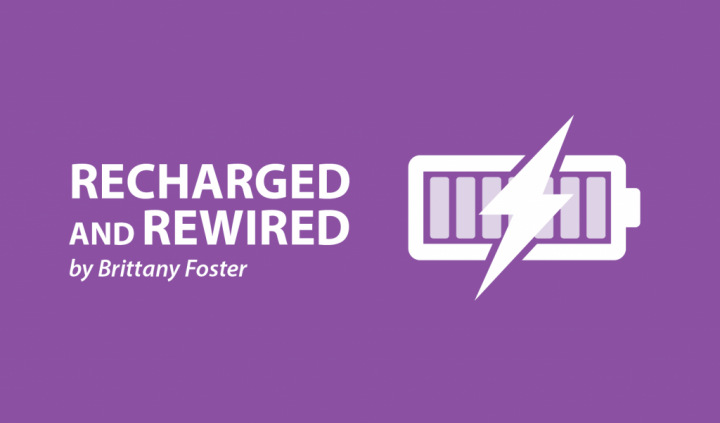What They Didn’t Tell Me in Discharge Instructions After Surgery

Last week, I was discharged from the hospital four days after surgery. During my stay, my body had gone through a trauma. I was operated on, intubated, and mechanically ventilated. I was managing pain that felt beyond my control. I was sleep-deprived, medicated, and not in a good state of mind.
I was given paperwork, including a hospital admissions summary, my medications list, and a discharge plan outlining when to call the doctor or 911 in case of an emergency. These instructions explained to me in what seemed like 30 seconds meant nothing to me. The discharge plan outlines physical symptoms of which to be aware. Unfortunately, the mental and emotional symptoms are not covered in the instructions.
My anxiety kicked in almost immediately. In the hospital, it was easy to rely on others to take care of my pain, answer questions, and report my symptoms to. Anxiety made me wonder, “How will I be able to manage this on my own? Is this normal? Why am I still feeling this pain? Did this surgery not work?”
When I realized that my anxiety was getting the best of me, I focused on getting the pain under control. I made a list of times that I took each medication, and when each was due, I took it. I made a list of symptoms to track and share with my doctor at my post-op appointment.
Over a few days, I became more depressed. When recovering from surgery, there is not much to do but rest, relax, and let the body heal. To some, this may sound amazing, but if you have a mental illness, it’s torture. I struggled with feeling sad and putting myself down. I thought I should be doing more or getting better more quickly. I wasn’t paying attention to each day’s small victories. I was too focused on the bigger picture. I wanted to sleep most of the day.
Interested in PH research? Check out our forums and join the conversation!
Sitting around, having time for myself, and resting are difficult. It makes me think and question more, and it makes me irrational. To help with this, as I was feeling better, I wrote down things I could do that I may not have been able to do the day before. I shifted my focus to making my own breakfast. Concentrating on the smaller victories and documenting some of them on my social media accounts made me feel supported.
It has been a week post-op, and I still feel the emotional toll that this surgery has taken on me. I fluctuate between feeling happy and proud of my accomplishments one minute and crying at the simplest of things the next.
Along with the emotional challenges, I was struggling mentally after this surgery. The feelings of lack of control over my body in the hospital, the panic I felt right before being put under anesthesia, and waking up wearing a large mask that was mechanically ventilating me are still in my mind. The fear is still there during the day when I find my body trembling and I feel the anxiety tighten its grip at night.
The discharge instructions don’t say anything about waking up from nightmares. They don’t mention the fear, sadness, anxiety, and difficulty with just being able to “relax and rest.” All of these feelings after surgery are real. The important thing for me and anyone else who is struggling with post-hospital emotions is to recognize the anxiety and the depression and talk about what may be keeping you up at night. Don’t hold that inside. Worry and sadness will only make it more difficult to recover. Address it, discuss it, come up with a plan. The body deserves to heal.
Can you relate to feeling anxious or depressed after a hospital stay?
***
Note: Pulmonary Hypertension News is strictly a news and information website about the disease. It does not provide medical advice, diagnosis, or treatment. This content is not intended to be a substitute for professional medical advice, diagnosis, or treatment. Always seek the advice of your physician or other qualified health provider with any questions you may have regarding a medical condition. Never disregard professional medical advice or delay in seeking it because of something you have read on this website. The opinions expressed in this column are not those of Pulmonary Hypertension News or its parent company, Bionews Services, and are intended to spark discussion about issues pertaining to pulmonary hypertension.









El
I can identify. The body knows full well the trauma we've been through, and sometimes this puts you involuntarily on high alert even when you know everything is ok. Three weeks after the operation, while trying to sleep, my body was panicking in response to ordinary household sounds. I could feel and hear my heart beat accelerate, and these sounds became sinister portents in my dreams when I did manage to sleep. I know this is just my body's confused reaction to having been chopped up and sewn back together, and still bruised and easily hurt. But it doesn't make the (panic attacks?) any easier. I wouldn't want to be facing off with that stuff with less resilience and life experience!
Nadia
I just had surgery to remove a big lipoma on my back , it took me very long to agree to this surgery . The weeks before the surgery were horrible , hardly any sleep ,anxiety and extreme fear which non of my family and friends understood specially since I am always a tough cookie . I have no idea how i was able to reach the hospital and the day of the surgery feels like i was in a huge bubble . If i could i would have ran away that morning , the idea of strangers cuttIng you up and you have to depend on someone who you will only met once with your breathing and intubation was horrifying for me . I must say i had an amazing surgeon and she was always there for me even via whatsapp before the surgery when i had anxiety but it didn't help . When they took me to the prep room my husband was allowed to stay with me cause i was completely panicking and then started to hyperventilate. Quickly the anesthesiologists gave me something and it was supposed to knock me out in 5 months minutes . Well i was fighting so much against this anesthesia that he was shocked i was still aware and talking so he had to give me more . I am actually glad somehow he did this before rolling me into the Operation room . I don't think i would have managed this fully aware . The next thing i remember was the nurses waking me up and i searched for a clock to see what time It was and that i am still alive . It has been four days since the surgery and the fear ,anxiety , trembling is still there every time i think about that day . Today i had a follow up at the hospital and the panic was so real .my doc recommended that i should see a therapist and i will for sure do that cause this fear is unbearable . I must say it was my first ever surgery but hopefully i will never have to go through one again . Now family and friend friends don’t understand why i still panic since everything went well and its over .